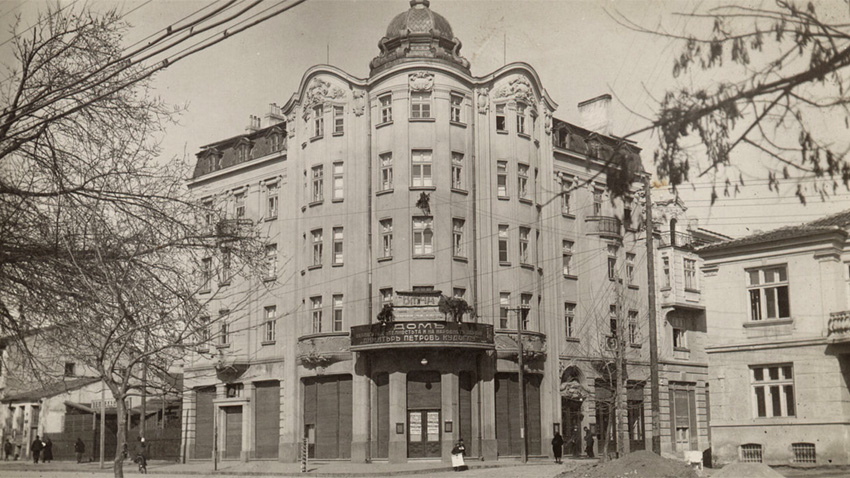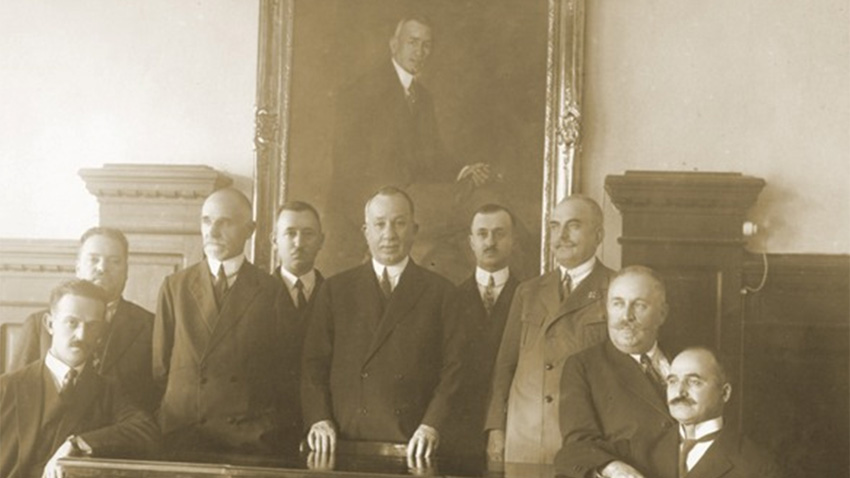August 21 marked the 154th birth anniversary of outstanding Plovdiv benefactor Dimitar Koudoglou. By a twist of historical irony on that same day aggressive flames ate at the Tobacco Warehouses in the city and almost reduced them to ashes. It was Koudoglu who had bequeathed the magnificent buildings in perpetuity to the city of Plovdiv. The disaster has promoted a wave of citizen rage and has given rise to speculations about arson.
For the people of Plovdiv the tobacco warehouses are more than architectural heritage. They symbolize charity and the nobleness of a prominent Bulgarian benefactor. Back in the early 20 c. the state too willingly supported charity. In 1926, the National Assembly voted a special bill to protect the donation of the Tobacco Warehouses. The aim was to make sure that the rent collected from using the warehouse area be used to finance the Plovdiv-based House of Charity and Public Health. To establish the center, Dimitar Koudoglou donated the King Simeon Hotel he usedto own.

For the sake of the noble cause the Council of Ministers issued a decree in 1932 relieving the healthcare establishment from customs duties and any kind of taxes. In 1940 the House saw a royal visit - by Tsar Boris III and Queen Joanna.
“Thousands of Plovdiv citizens survived owing to the medical center financed by the warehouses' rent”, historian Vladimir Balchev tells us. “The House of Charity and Public Health was a place where life-threatening diseases were treated, like tuberculosis. It was a state-of-the art facility with an expert medical team and up-to-date equipment. Dimitar Koudoglou was the foremost benefactor of Plovdiv, and now the city shows its 'gratitude' by annihilating all that he left for posterity. The House of Charity and Public Health is gone, the Tobacco Warehouses are gone. By the way, the Tobacco Warehouses' sale was in a way criminal. How could the Municipality possibly sell a property bequeathed to Plovdiv in perpetuity? Also, the state should protect monuments of culture. One great example is Plovdiv Mayor Bozhidar Zdravkov who in 1936 relieved of taxes citizens who would restore their private houses in the Old Town.”

The Tobacco Warehouses that have a sophisticated Vienna-styled architecture were on the list of locations of the widely promoted campaign “Plovdiv, European Capital of Culture 2019”. So, after the huge fire which almost annihilated them, Minister of Culture Vezhdi Rashidov paid a visit to Plovdiv for first-hand impressions of the ruined site. He vowed to work for a new Monuments of Culture Act aimed to prevent such disasters in the future.
„My personal stand is that the building should be restored. When anybody becomes an owner of a monument of culture he or she should be aware that in such a case property is also responsibility. In September we will submit to parliament a bill of amendments to the Monuments of Culture Act introducing hefty fines for neglect of monuments. Demolition and annihilation of monuments of culture should never happen again. Investing in them is alright, but this does not mean owners will be free of any responsibility.”
English Daniela Konstantinova
Who said Bulgarians were grumpy pessimists? Take a stroll through Sofia's Christmas bazaars and meet the cheerful crowd. The festive decorations, music, merry-go-rounds and stalls overflowing with treats and handmade souvenirs can make the gloomiest..
Bulgarian studies are highly valued at the Bogdan Khmelnitsky State Pedagogical University in the Ukrainian city of Melitopol. So it comes as no surprise that the university is hosting the latest edition of the International Bulgarian Studies Readings,..
"You say you are Bulgarian, but you do not know Bulgarian" – this reproach from officials in Bulgaria has been faced by quite a few by our compatriots from the historical Bulgarian communities around the world. One of them is Bledar Alterziu from..

+359 2 9336 661
